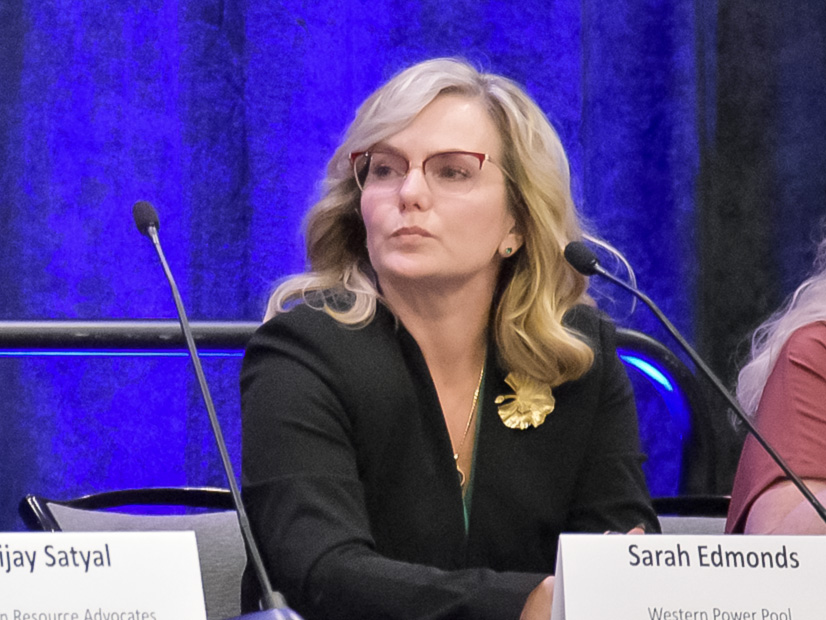DENVER — Western Resource Adequacy Program (WRAP) participants still strongly support the program despite recently appealing to delay its “binding” penalty phase by one year based on concerns about capacity shortages, Western Power Pool (WPP) CEO Sarah Edmonds said April 24.
But Edmonds acknowledged the appeal clearly signals the RA situation in the West is much more critical than previously thought.
“[Participants] are still unwaveringly committed to WRAP, which is good news for us, because our belief in the urgency and the need for the program has not changed,” Edmonds said during a panel discussion at the spring joint meeting of the Committee on Regional Electric Power Cooperation and Western Interconnection Regional Advisory Body (CREPC-WIRAB) in downtown Denver. “If anything, it’s only increased in this era of heightened reliability risks and NERC [and] WECC assessments warning us for quite some time that we have a serious issue that we’re facing,” she said.
Edmonds’ comments came two days after the WRAP’s Resource Adequacy Participants Committee (RAPC) issued an April 22 letter saying program members would postpone binding operations to summer 2027 because some of them confront “significant new headwinds” in securing sufficient energy resources to meet their capacity obligations and avoid heavy penalties in the WRAP’s FERC-approved tariff. (See WRAP Participants Seek 1-Year Delay to ‘Binding’ Operations.)
The letter cited problems with new resources’ supply chains, forecasts for faster-than-expected load growth and “extreme weather events” that have challenged assumptions about the volume of resources needed to maintain grid reliability as key reasons the delay is required.
“The RAPC letter is an illustration of the fact that we are shorter than we thought as a collective, and there is not critical mass. And in terms of WRAP, we are facing more resource inadequacy going forward,” Edmonds said.
Participants are looking to “revisit” WRAP “transition provisions” providing “discounts” to penalties and offer measures “that make it easier to become binding in this program,” Edmonds noted.
WRAP entities face a May 31 deadline to commit to the binding phase beginning in summer 2026, but stakeholders determined the program would not obtain a “critical mass” of participation by that time, she said.
The WRAP’s tariff allows WPP to commence binding operations anytime between 2025 and 2028. Participants will work to position the program for participants to commit in May 2025 for the summer 2027 binding phase, a change requiring stakeholder approval.
“I hope that’s the last marker,” Edmonds said. “Summer of 2028 is the very last moment — that’s when everyone in this program who’s still there needs to be fully binding.”
Edmonds said the nonbinding phase of the program still offers “a lot of value.”
“We’re essentially in an informational stance where we’re going through a lot of the processes — the forward-showing, planning process — and then essentially setting up an operational program that can track how it would really look in real life if we were in this program,” she said.
“We could do better on all those pieces in terms of the quality of the data that we’re receiving from participants, the amount of data the Western Power Pool is permitted to see in the tariff, and how we can then explain that data and turn that data into information that’s useful for the region,” she added.




